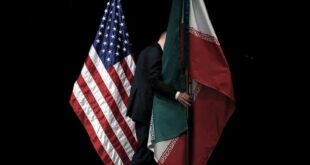LONDON — Gordon Brown may lead efforts to revive the nuclear Non-Proliferation Treaty (NPT) as a way of tackling Iran’s atomic ambitions, his most pressing foreign policy challenge once he becomes British prime minister.
After 10 years as finance minister, Brown is widely expected to succeed Tony Blair in June or July. Government and diplomatic sources say he may have less than a year to influence policy on Iran as Washington’s patience with Tehran wears thin. Western relations with Iran are fraught because of concern it may be trying to build nuclear bombs under cover of an atomic energy programme, and threats of UN sanctions appear so far to have done nothing to dissuade it from pressing on.
“There are things Brown can do and things he can’t do. Iran is the thing he can’t do,” said one government source.
Experts believe Iran is close to enriching industrial quantities of uranium, which can be used to generate electricity or, if highly enriched, to make nuclear bombs.
Sources close to Brown say his aides are discussing ways of reinforcing the NPT, a pact which has neither prevented several states acquiring nuclear arms nor persuaded others to disarm.
“We need to think about whether we want to take a more internationalist approach to the counter-proliferation agenda and look at steps that could be taken by nuclear-possessing countries to get the process going again,” said one source.
The treaty dates back to 1968 but four states known, or believed, to have nuclear weapons — India, Pakistan, Israel and North Korea — stand outside of it and in this context some see the Western campaign against Iran as hypocritical.
Â
New message
Â
“You cannot have a world of nuclear haves and have-nots and there is a huge audience for this message right now,” said Dan Plesch, author and commentator on nuclear proliferation. A call this year by former US Secretary of State Henry Kissinger for Washington to lead a consensus to reverse global reliance on nuclear weapons caused a stir.
A meeting in Vienna in May will review the NPT and while Britain decided last week to renew its Trident nuclear weapons system, analysts reckon Brown could play into a shift in sentiment in parts of the US political establishment. While Iran has denounced Britain’s renewal as a serious setback to disarmament efforts, London plans to cut its warheads by 20 per cent, in line with its obligations under the NPT, and government sources say there is scope to ditch more.
Getting fresh commitment to a truly inclusive pact to limit the proliferation of nuclear weapons might then help the UN Security Council in its bid to curb Iran’s ambitions. Brown will be keen not to be seen as subservient to Washington — a perceived failing which hurt Blair — but he is committed to maintaining strong ties with the United States.
Britain sees itself as a trusted interlocutor, a role which analysts say could be vital because the US government is seen to have little ideological room for manoeuvre over Iran and those backing military strikes want to ratchet up the pressure during the final years of George W. Bush’s presidency. “Washington is boxed into a corner,” said Robin Niblett, director of Chatham House, an international affairs think tank.
“The Bush administration can’t discuss Iran without going back on their perception that it is at the heart of an existential threat to Israel because it is seen as supporting terrorist groups like Hizbollah and working on nuclear weapons.” “That makes it just impossible for the Bush administration to talk to them. The UK has to lead,” Niblett said. But Brown, who has relatively little experience of dealing with Middle Eastern policy issues, would have to act fast.
“The Israelis seem to have set a timetable of six to nine months, in terms of the intelligence they are pushing about when Iran will have industrial-level enriching capacity,” said Alex Bigham, Iran analyst at the Foreign Policy Centre in London.
“Then there will be a lot of pressure on the United States — and by default Britain — to take action.”
 Eurasia Press & News
Eurasia Press & News


